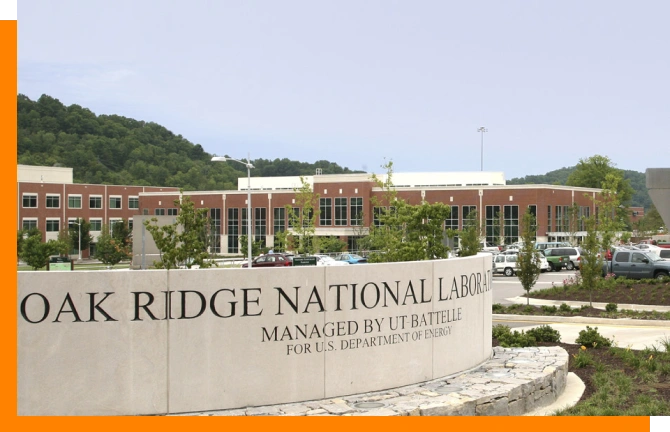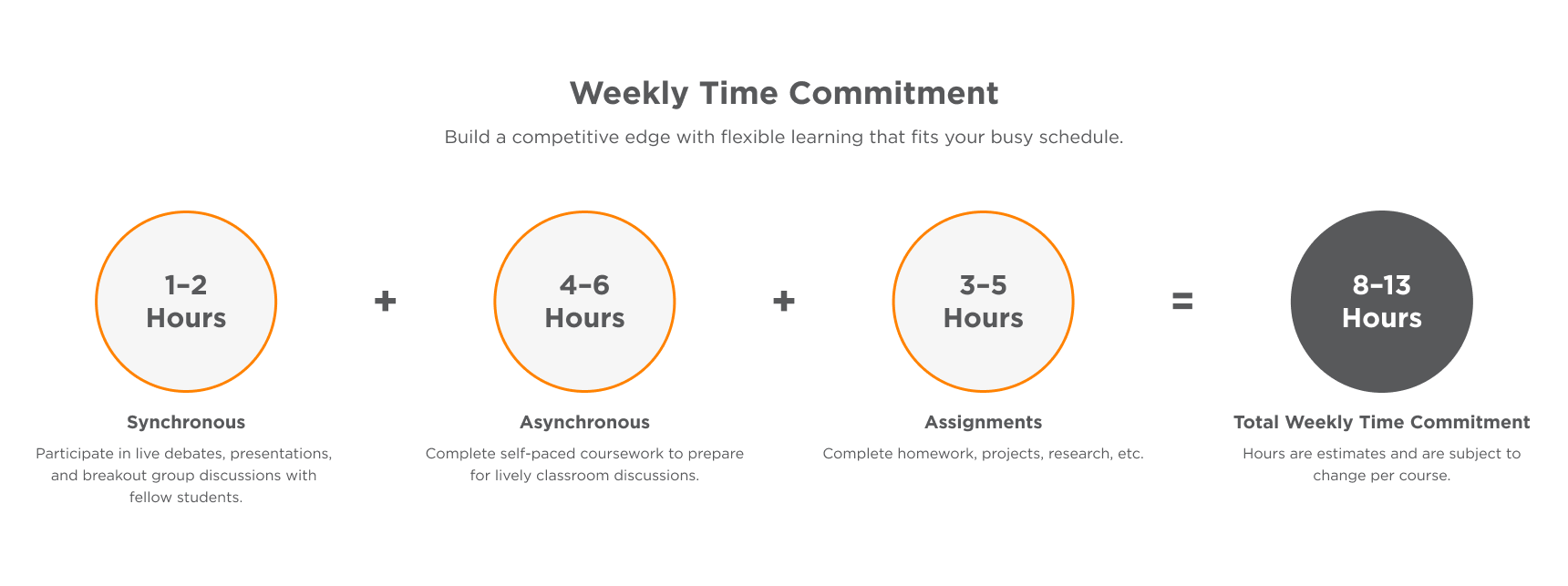Online Master of Science in Computer Science (Online MSCS)
UT Online MSCS Program Overview
Harness the power of new technologies in emerging areas of computer science through the online computer science master’s from the University of Tennessee, Knoxville.
With specialized computer science training led by some of technology’s top practitioners in the Department of Electrical Engineering and Computer Science (EECS), the online Master of Science in Computer Science (MSCS) degree program offers network connections, program concentrations, and the critical thinking skills you need to lead the field.
From deep learning to software engineering coursework, your program will give you the space to create, innovate, and learn in a format that fits your lifestyle. In as few as 18 months, you can complete your 100 percent online MSCS while working full time.
With the full support of the EECS faculty—an expert roster that includes:
- White House Office of Science and Technology Policy leaders
- National Science Foundation researchers
- Award-winning scientists, and more
You’ll master the theory and practice of advanced computer science concepts to maximize your earning and creative potential.

100% Online

24 Months to Complete*
*Varies based on number of credits taken per term

10 Courses

No GRE Required

$25,830**
**Based on 2024-2025 in-state tuition rates

Three Concentration Options
Oak Ridge National Laboratory: Your Gateway to World-Class Research

The University of Tennessee, Knoxville, co-manages Oak Ridge National Laboratory (ORNL), the nation’s largest and most diverse science and energy laboratory. ORNL conducts leading-edge technological research, creating transformative solutions to pressing challenges in energy and security.
UT and ORNL researchers collaborate in a variety of areas, including:
- Artificial intelligence and big data
- Supercomputing and cybersecurity
- Advanced manufacturing technologies
- Energy innovation
This robust partnership provides students with unparalleled access to pioneering research initiatives. UT computer science students benefit from direct engagement with the lab through dedicated programs and activities, positioning them at the forefront of innovation. Upon graduation, you’ll leverage this partnership, possessing not only advanced expertise but also a competitive edge in the rapidly evolving tech landscape.
Who Should Attend?
At its core, the online MSCS is designed for students with computer science or related experience. STEM professionals who want to evolve into more curious and creative problem-solvers will develop through coursework in:
- Data mining and analytics
- Deep learning
- Network security
- Cybersecurity
- Software engineering
- Artificial intelligence
- Computer vision
With training in advanced areas of computer science, you’ll develop an agile set of skills suited for a rapidly expanding field with significant earning potential. Possible career outcomes of MSCS graduates include:
| TITLE | AVERAGE SALARY |
|---|---|
| Principal Software Engineer | $139,855 |
| Principal Systems Engineer | $139,855 |
| Senior Software Engineer | $127,319 |
| Data Scientist | $100,498 |
| Back End Software Engineer | $96,959 |
| Data Engineer | $96,661 |
| Senior Software Programmer | $87,075 |
| Full Stack Software Engineer | $85,489 |
| Software Developer | $78,202 |
| Data Analyst | $67,293 |
Source: Payscale as of April 17, 2024 or U.S. Bureau of Labor Statistics, May 2023 National Occupational Employment and Wage Estimates.

“As director of software development, I’m implementing what I learned and inspiring others in my department. By applying my knowledge to code reviews, I’m ensuring my company produces the product our customers want.”
–Wes Tebo (MS/CS, ’24)

Jack Dongarra
Professor Emeritus and Research Professor
UT’s Tickle College of Engineering
Recipient of the 2021 Association of Computing Machinery Alan M. Turing Award, often referred to as the Nobel Prize of computing, for his groundbreaking contributions to high-performance computing.
Read our news release about this prestigious honor.
Why Earn an Online MSCS?
At UT, you no longer have to choose between flexible and exceptional education. Through our online MS in Computer Science program, you can earn an interactive, technical degree without leaving the workforce, losing time to commuting hassles, or relocating for school.
Our online learning environment allows you to earn your computer science master’s at a pace that suits your needs. While the average time to completion is 24 months, you can complete your online MSCS in as few as 18 months.
Regardless of your program pace, you’ll progress through our customizable curriculum with a team of UT faculty and student support coaches committed to your success as an online learner.
Curious about the virtual classroom? Through a mix of asynchronous coursework and live online classes, our program pairs the best aspects of independent and social learning. Theories studied outside of the classroom will be discussed, dissected, and applied through class conversations, assignments, and projects. Over the course of your degree, you’ll build a portfolio of work that demonstrates your proficiency in emerging computer science areas.
To learn more about live lectures, scheduling options, and the typical weekly time commitment, sign up for an information session with a member of our admissions team.
Engineer Your Online MSCS with Career-Specific Concentrations
Top computer science roles require specialized skills you may not develop with a general degree. That’s why our online MS in Computer Science offers three concentrations designed around in-demand areas of the field. Customize your computer science education with courses grounded in Cybersecurity, Data Mining and Intelligent Systems, or Software Engineering.
Cybersecurity
As organizations expand their digital presence, the risk of cyber threats continues to rise. Expand your ability to prevent, detect, and respond to cybersecurity events. With skills in advanced network protection, you’ll become a valuable asset to any organization.
Data Mining and
Intelligent
Systems
Advances in high performance computing (HPC) and artificial intelligence (AI) radically change the way we move through the world. Learn the advanced methodologies, models, and tools behind HPC and AI to develop creative applications of automation and big data.
Software
Engineering
From computer games to control systems, you can design, optimize, and maintain elaborate systems as a software engineer. Students explore coursework covering the technical and problem-solving skills necessary to work in front-end, back-end, and full-stack leadership roles.

“Since starting the program, my thinking has improved. In exploring AI, I’ve learned to incorporate transformers and self-healing processes. In C# coding, I’ve achieved a greater focus on algorithms and reusability. I also earned my Scrum Master Certification after completing the Advanced Software Engineering course.”
–Nilesh Sarkate (MS/CS, ’25)
Online MSCS Learning Experience

Weekly Time Commitment
Build a competitive edge with flexible learning that fits your busy schedule.
1-2 Hours
Synchronous
Participate in live debates, presentations, and breakout group discussions with fellow students.
+
4-6 Hours
Asynchronous
Complete self-paced coursework to prepare for lively classroom discussions.
+
3-5 Hours
Assignments
Complete homework, projects, research, etc.
=
8-13 Hours
Total Weekly Time Commitment
Hours age estimates and are subject to change per course.
Weekly time estimates are based on the typical workload for a three-credit course during fall and spring 15-week semesters.
Total time may vary based on the number of units per course, semester length, and student needs.
Cutting-Edge Online MSCS Curriculum
Inspired by industry trends and innovative research, the online MSCS curriculum introduces and emphasizes emerging areas of computer science that elevate your skills and knowledge to exceed industry standards.
Theoretical and practical aspects of machine learning techniques related to pattern recognition. Statistical methods studied include Bayesian and linear classifiers, support vector machines, neural networks, and unsupervised learning. Syntactic methods include grammatical inference, string matching, and Markov chains. Ensemble methods include random forests, adaptive boosting, and classifier fusion.
An exploration of the central issues in computer architecture: instruction set principles and design, memory hierarchies (cache and main memories, mass storage, virtual memory) and design, pipelining, instruction-level parallelism, bus organization, RISC (Reduced Instruction Set Computers), CISC (Complex Instruction Set Computers), multiprocessors, implementation issues, technology trends, architecture modeling, and simulation.
Operating system structures, virtual memory, interrupts, exceptions, system calls, and processes. Focuses on design and implementation of advanced concepts in file systems, memory management, mass storage devices, process management, and other operating system-related topics.
Theoretical and applied aspects of artificial intelligence. Course topics include problem solving and search, knowledge representation and reasoning, decision-making under uncertainty, machine learning, and multi-agent systems.
Advanced coverage of software processes and technologies that can be used on large projects to help design, manage, maintain, and test software.
Topics in compilers and runtime systems, including: static and dynamic program analysis, performance measurement and characterization, compiler optimization, high-level language virtual machines, instruction set emulation, JIT compilation, explicit vs. automated memory management, and garbage collection.
Recommended Background: Introductory coursework in computer architecture, operating systems, and compilers.
In-depth study on the underlying mathematics, computational methodologies, associated theoretical considerations, applications and practical cryptographic techniques. Hands-on assignments will be given, requiring demonstration, presentation, and report writing.
Credit Restriction: Students cannot receive credit for both 483 and 583.
In-depth study on vulnerabilities and threat vectors associated with mobile and embedded devices, such as smartphones, wearable devices, and IoT devices. Topics include security features and limitations of mobile operating systems, secure programming, mobile location and activity privacy, user/device authentication, IoT wireless security, side-channel attacks on mobile/wearable devices, and security and privacy breaches on smart home devices. Coursework focuses on improving knowledge and awareness of mobile and embedded systems’ security issues, through individual homework assignments and an intensive group project involving hands-on research.
An in-depth introduction to software security. The focus is on identifying vulnerabilities in software, exploiting vulnerabilities in software, and software development best practices for avoiding vulnerabilities during the design, implementation, testing, and deployment of software. Coursework involves hands-on experience exploiting software vulnerabilities to increase understanding, awareness, and appreciation of software vulnerabilities.
Analysis of algorithms and relevance of analysis to design of efficient computer algorithms. Sorting, searching, graph algorithms, pattern matching, dynamic programming, and efficient approximation algorithms.
Graphical techniques to reveal intrinsic properties in data, acquired or computationally-simulated, from various scientific, medical, and engineering applications. Topics may include visual perception, structure and storage of high-dimensional data (structured and unstructured), visualization of scalar fields, vector fields, tensor fields, or other complex quantities, time-varying data, advanced light transport (single-scattering and multiple-scattering), transfer functions, graphs and manifolds, level sets, interpolation, and hierarchical and parallel acceleration methods. The design and use of leading production visualization packages will also be covered.
In-depth overview to the design and implementation of computer networks. It features a top-down approach in the discussion from the application layer down to the physical layer. Topics to be covered include: layered network architecture, physical media, data link protocols, network routing, transport layer, network programming interfaces such as sockets, and applications. Case studies on protocols will be primarily based on the Internet and the TCP/IP suite. Includes hands-on programming assignments related to networking protocols and concrete application problems.
Advanced coverage of the design, implementation, and study of user interfaces. Provides an overview of the user interface design/evaluation process, event abstraction within user interfaces, user interface components, specification of user interfaces, and the architectures within which user interfaces are developed.
In-depth study on core internet and wireless technologies, related security concerns, common security vulnerabilities, and good security practices. Hands-on experience exploiting network protocols and communications, and setting up secure network connections. Hands-on assignments will be given, requiring demonstration, presentation, and report writing.
Provides a practical introduction to big data mining and analytics, blending theory and practice. Over the course of the semester, students will become familiar with modern data science methods, gain comfort with the tools of the trade, explore real-world data sets, and leverage the power of high performance and cloud resources to extract insights from data. Upon completing the course, students will learn how to create reproducible and explanatory data science workflows, how to implement a modern MapReduce, and how to implement parallel clustering methods. Students will also study strategies for overcoming the common imperfections in real-world datasets, and apply their new skills to extract insights from a high-dimensional dataset.
An advanced topic course focused on developing multi-disciplinary skills of discovering, retrieving, analyzing, and presenting operational data. Students will use critical thinking and intense practice solving real-world problems to recognize and address key operational issues: the lack of context, missing observations, and incorrect values. At the end of the course students will be able to discover operational data, to retrieve and store it, to recover context, to estimate the impact of missing events, to identify unreliable or incorrect values, and to present the results. Hands-on assignments will be given, requiring demonstration, presentation, and report writing.
Theoretical and practical aspects of how to build deep networks for representations of high-dimensional data. Deep models for both supervised and unsupervised learning will be discussed, including convolutional neural network, autoencoder, generative adversarial network, and recurrent neural network.
Introduction to database theory, models, and query formation. Survey of scripting languages, their uses, and their interconnectivity with databases.
A broad introduction to human-computer interaction (HCI) and its impact on the theory and practice of cybersecurity. Topics include the research methods in HCI, ethics, authentication, usable secure communication, phishing, usable cryptographic libraries, inclusivity/diversity in system design, and human-aware policy creation. Coursework focuses on helping students adapt a human-aware mindset regarding the design, implementation, and use of cybersecurity tools and principles.
This course presents natural language processing (NLP) theory and methods available for reasoning about text in computational systems. NLP is deeply interdisciplinary, drawing on both linguistics and computer science, and enables numerous applications of computational text analysis. The course will cover major algorithms used in NLP, common applications of NLP, and the underlying linguistic phenomena NLP systems attempt to model.
An in-depth study on the principles of designing and developing applications in the context of the Internet and the web. Includes an overview of web protocols, the client-server architecture paradigm, and software components that underlie the two of them. Related topics are also covered, including security, synchronization, interactivity, and advanced web architectures.
Principles and methods for reinforcement learning and sequential stochastic control; Markov decision problems; dynamic programming; temporal difference learning; design considerations for hardware and software.
In-depth study on a range of new developments for the design of secure and trustworthy computer hardware. Topics covered include physical and invasive attack models, side-channel analysis (SCA) attacks, physical unclonable functions, hardware-based random number generators, watermarking of intellectual property (IP) blocks, FPGA security, passive and active metering for piracy prevention, and hardware Trojan detection and isolation. Hands-on assignments will be given, requiring demonstration, presentation, and report writing.
Principles of computer vision algorithms including segmentation and active contour, feature detection and matching, depth recovery from stereo, motion estimation and tracking, image classification, object detection, and scene understanding.
Featured Faculty


Lynne E. Parker

Stephen Marz


“UT’s faculty understand that most students in the program are working adults with families and other commitments. My professors were always willing to meet with me to explain topics and offer guidance.”
–Wes Tebo (MS/CS, ’24)
FAQs
Looking for an answer not listed on our site? Connect with our team today to get answers to your top questions.
With computer and information research scientist employment projected to grow 26% by 2033,* earning your MS in Computer Science from UT is one way to prepare for a field experiencing dynamic growth. With an average tuition cost under $28,500, our online MSCS offers considerable value and significant ROI in a career sector with a median annual wage of $140,910.*
*U.S. Bureau of Labor Statistics, 2025.
At UT, you don’t have to choose between the two paths. With data-centric coursework and a concentration in Data Mining and Intelligent Systems, the online MS in Computer Science curriculum positions students to work at the intersection of computer and data science.
The online Master of Science in Computer Science takes an average of 24 months to complete, though the total time to complete the degree may vary based on the number of credits taken each semester. You will have ownership of your course load each semester, and can enroll in as few or as many credits as you want to accommodate your busy schedule.
Connecting with an enrollment advisor will help you:
- Understand the program admissions criteria and know whether you are eligible to apply.
- Gain insight into application best practices and how to submit a strong application.
- Know what to expect in your online classroom, including the level of faculty interaction, program outcomes, and more.
- Have an immediate line of support in the event you have questions or need clarification about the online MSCS program.
Yes. All components of our online MSCS can be completed virtually.
The flexible nature of our online MSCS curriculum allows you to enroll in classes outside of your concentration. While you will need to select a specified program path (and choose between concentrations in Software Engineering, Applied Cybersecurity, and Data Mining and Intelligent Systems), you can tailor your course of study to meet your goals.
With an MSCS degree, you’ll qualify for a wide range of jobs across various industries. Whether you’re aiming to become a software engineer, data scientist, cybersecurity analyst, artificial intelligence specialist, or technology consultant, our program provides the expertise and hands-on experience necessary to excel in these dynamic roles.
For the 2024-2025 academic year, the estimated in-state tuition for the online MSCS program is $25,830, and out-of-state tuition is $28,080. The total cost of attendance may include additional university fees. For the most accurate and up-to-date information regarding tuition and fees, students are encouraged to contact UT’s Bursar Office directly.
Key Dates
Fall, spring, and summer starts are available.
Scheduled Events
Check back soon for more upcoming events.
On-Demand Content
Program
Discover our program and what makes it unique, including concentrations, curriculum, faculty, and more.
Admissions
Review our admissions process, including program eligibility, application materials, prerequisites, and key dates.
Tuition and Financial Aid
Review our current tuition costs and find out how to apply for federal financial aid.
Articles
Explore our collection of helpful articles about the program, application process, career outcomes, and more.